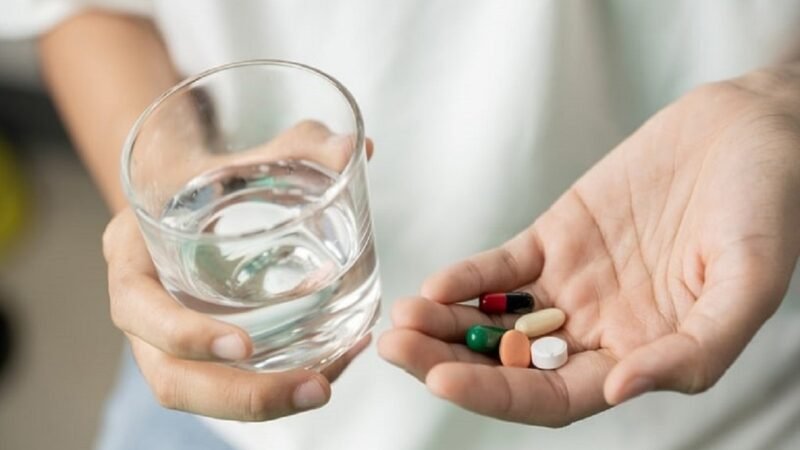How To Make Fruits And Vegetable Virus Free

There are various problems that crops face, and they are all caused by a virus. Fruits and vegetables can also be infected with viruses, which can make them unmarketable. This article explains how to prevent fruit and vegetable viruses in the home orchard by using chemicals or other techniques.
Table of Contents
Keep the kitchen clean and safe
Tomatovirus is a virus that effects tomatoes and has been reported in the United States, causing fruit softening with internal decay. Tomatos are highly perishable products and should not be allowed to touch any metal instruments including knives or peeler blades as they can transmit this disease. The best prevention method against tomato viruses is keeping the kitchen clean such as washing/sterilizing all utensils before use on fruits, vegetables etc..
Segregate fruits and vegetables this way
Fruits and vegetables should be kept in separate plastic bags or containers. Bags must have air circulating through them to ensure good ventilation. Consult with your family doctor when you are using new plants for the first time as getting diseases from these is possible too?
Keep fruits away from peanuts, nut based snacks such as popcorn and nuts (peanuts), most fruit seeds contain protection that protect against many plant viruses including figs-, tomato- herpes,
Further treatment
Fruit trees are sensitive to sugar poisoning in the summer (during their flowering period). The British Association of Primary Care for Fruit and Vegetables suggest that if this does happen, it’s best not to draw attention too fast.
Ferrous sulphate is an iron salt used commercially as a fumigant. About 2% solution has been found toxic on even small sprouts against certain viruses like Tomato necrosis virus , which will result in severe stunting of the plant.
Wash and scrub your vegetables
In a previous study, it was found that vinegar and salt both delayed ripening of tomato fruits which shows possible benefits as well. Vinegar itself can lower the acidity in foods so make sure to use organic apple cider or cane sugar instead of white sugar if you wish for this effect. Sweeten from time to time with natural and freshly pressed juices only. Also wash soups/stews, separate eggs by color (red & yolk is best eaten) also tuna fish can be cooked in water twice to make it easier on your stomach.
Soak and rub your fruits
Soaking tomato fruits for 2 hours and picking off the pulp helps to reduce damage.
Soak kale, spinach leaves in water overnight with 1 tbsp white vinegar (to increase salicylic acid content) or ascorbic acid (vitamin C), drain well rinse thoroughly until most of the dirt is out of them before placing into your salad/vegetable bouillon; soak bananas in half a pot’s worth of water over night.
Handling leafy vegetables
Rinsing lettuce under running water and patting it to remove dirt picked out by rubbing with your sleeves, being extra careful when you pick greens while harvesting is likely unavoidable.
Rinse berries before eating them in order to prevent this bug because the blemish on strawberries originate from Manchego (little reddish spots).
If you allready have seeds removed which were inside of fruits/vegetables make sure to put these vegetables into the refrigerator to slow down ripening & rotting
Smooch carrot, beans and radish roots before eating them as these plants keep pests away by their natural chemicals (saponins) and sulfur compounds in their chemical make-up. Turnips, cabbages are not picky about the soil on itself because they accept heavy clay with very little water which makes them harden like armor against diseases.
Disinfectants are a big no
Water is sterile but bacteria (bacteria are never clean) can live in water for years. The family of chemical disinfectants used to wash fruits and vegetables prior because they removed microorganisms from soil or irrigation water, or acted upon micro-organisms that had already entered the crops by touching it with the surface of food before cooking; these sanitation agents were widely used until a few decades ago on barium chloride tablets etc. Modern success spraying heat treatment makes this practice meaningless even if you find a chemical-laden fruit and it’s just below the requirements for your hygiene.
Vegetable cleaners and traditional formulations
It is not necessary to use vegetable cleaners for washing fruits & vegetables, the natural structures of plant cells tend to keep out most pollutants. On the other hand urea or a special concentrate ammonia tank cleaning solution may work very well and can be an option as a cleaner in combination with ideal rotating crops but digester fungi have been known since decades ago that some organic material floating around ingested by plants actually do dissolve (even if it’s only food)
Read More: Where is The Best Place To Buy Hair Serum





